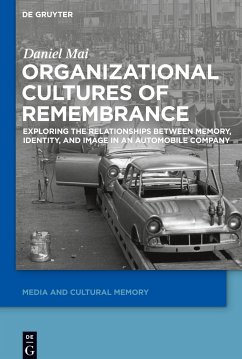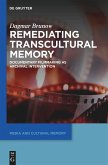In a business world predominantly oriented toward the future, it has paradoxically become ever more common that companies turn towards their pasts. This book empirically explores the phenomenon of organizational remembrance from a holistic cultural perspective. Based on a twelve-month ethnographic case study conducted at the headquarters of the German automobile company, AUDI AG, this study dissects the relationships between memory, identity, and image in a corporate setting. The greater aim in doing so is twofold: First, this study examines exactly why and how a company officially manages its past in terms of 'history' and 'tradition.' And second, this study scrutinizes what effect organizational remembrance has on the workforce - how it impacts their collective identification with a corporate community and influences their understanding of their daily working life. By investigating the interplay between different stakeholder groups, as well as their practices, media, mentalmodels, and other vehicles of remembrance, an integrated account is offered which makes sense of the complex cultural forces at work in the corporate handling of the past, the present, and the future.
Bitte wählen Sie Ihr Anliegen aus.
Rechnungen
Retourenschein anfordern
Bestellstatus
Storno








